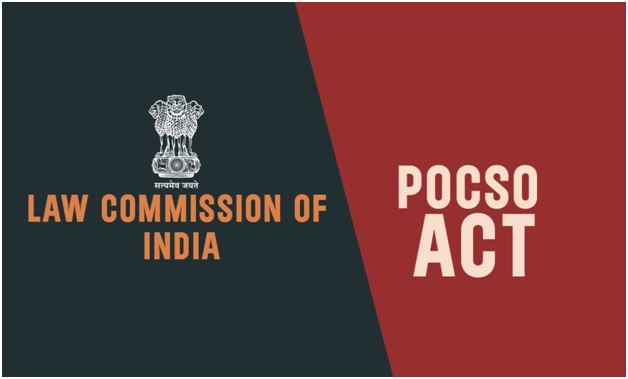Law Commission against lowering the age of consent under the POCSO Act (The Hindu)

- 30 Sep 2023
Why is it in the News?
The Law Commission advises maintaining the current age of consent at 18 years under the Protection of Children from Sexual Offences (POCSO) Act. Reducing it could harm efforts to combat child marriage and trafficking.
Context:
- The Law Commission, led by Justice (Retired) Ritu Raj Awasthi, submitted Report No. 283 to the Law Ministry.
Key Points from the 22nd Law Commission Report:
- It advises against lowering the age of consent, citing potential negative impacts on combating child marriage and trafficking.
- The panel recommends amendments to the POCSO Act, 2012, addressing cases where 16 to 18-year-olds give tacit approval, not legal consent.
- Courts are advised to handle adolescent love cases with caution to maintain a balanced approach, prioritizing the child's best interests.
- The Law Commission also proposed phased implementation of e-FIR registration, starting with offenses carrying up to three years of imprisonment. This move aims to address delays in FIR registration and enable real-time reporting of crimes.
The Protection of Children from Sexual Offences (POCSO) Act:
- POCSO Act, enacted in 2012 and administered by the Ministry of Women and Child Development, is India's first comprehensive law addressing child sexual abuse.
- It aims to safeguard children from sexual assault, harassment, and pornography and establishes Special Courts for such cases.
- In 2019, amendments were made to enhance penalties for specific offenses, discouraging perpetrators and promoting a dignified upbringing.
- Key Features:
- Gender-neutral definition: The Act defines a child as "any person" below 18 years.
- Non-reporting as an offense: Those responsible for institutions must report sexual offenses involving subordinates, with penalties for failure to do so.
- No time limit for reporting abuse: Victims can report offenses at any time, even years later.
- Confidentiality of victim's identity: The Act prohibits the disclosure of the victim's identity in any media without authorization from special courts.
- Challenges:
- Rising abuse, especially during the Covid-19 pandemic, with the emergence of new forms of cybercrime.
- Lack of awareness among minors, parents, and society.
- Concerns about the criminalization of consensual sexual activity among adolescents prompted calls for legislative review by CJI D Y Chandrachud.
The Issue of Minors Facing Legal Action for Consensual Acts:
- Minors aged 16 to 18 engaging in consensual activities that could be considered sexual under the law face potential bookings under POCSO.
- Even though these cases of adolescent consensual activity may not always lead to the conviction of a minor, the legal framework could lead to the denial of bail and prolonged detention.
- A study revealed that in West Bengal, Assam, and Maharashtra, one in every four cases under the POCSO Act involved what could be termed as "romantic cases," where the victim was in a consensual relationship with the accused.
What Does 'Age of Consent' Mean?
- The 'age of consent' is the legal threshold at which a person is deemed capable of giving consent for sexual activities. Before the POCSO Act, this age was set at 16.
- Under the POCSO Act, any sexual activities involving individuals under 18 are classified as criminal offenses, regardless of whether mutual consent exists among minors.
- This determination is rooted in the legal assumption that individuals under 18 lack the capacity to provide consent within the legal framework.
